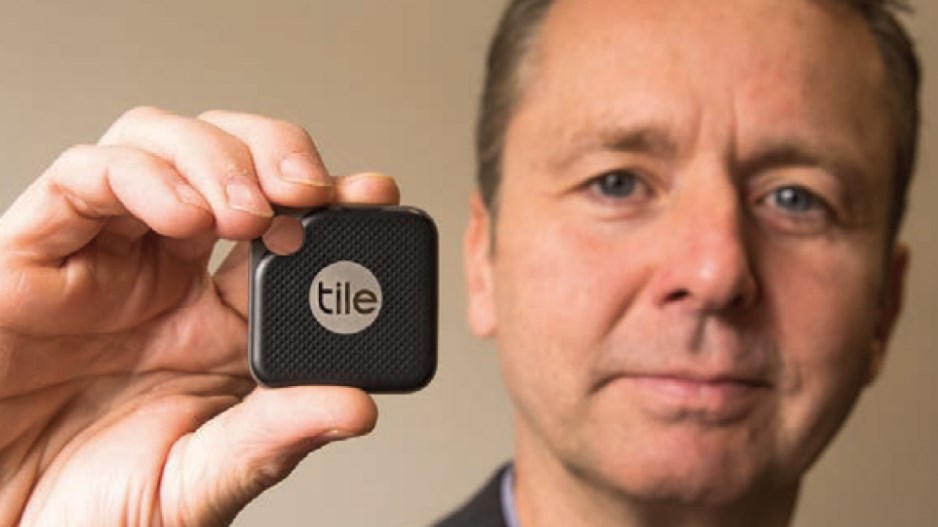While David-esque in size compared with goliaths like Amazon.com Inc. (Nasdaq:AMZN) or Microsoft Corp. (Nasdaq:MSFT), smaller American tech firms are increasingly borrowing from the playbook of giants by expanding substantially in Vancouver.
“Certainly helps when something becomes such an obvious magnet for talent,” said Tile Inc. chief experience officer Simon Fleming-Wood.
His consumer electronics company, which has a head count of about 100 employees in Silicon Valley, announced in late May it was establishing a back-end engineering hub in Vancouver.
Fleming-Wood said the company will expand to about 20 workers in the next 18 to 24 months, “but from our perspective we don’t see any real upper bounds to how big we want that office to be.”
It’s the first major office for the company outside of its U.S. headquarters.
The same week Tile revealed its expansion plans, Seattle-based technology consulting firm Slalom LLC – employing 6,500 workers globally – announced it was also expanding to the city and hiring tech workers.
A month earlier, Seattle- and Palo Alto-based DataCloud International, Inc. – a mining tech and analytics company – said it was opening an office in Vancouver, and San Francisco software firm Tigera Inc. kicked off the year in January announcing plans to open a local office.
“Being a tech company in the Bay Area comes with a certain set of challenges these days, and one of those is competing for talent all the time with everybody else in this market,” said Fleming-Wood, a Canadian by way of Toronto now based out of his company’s Silicon Valley headquarters.
“So, like a lot of other companies, we’re looking to start a second engineering hub to help us accelerate our hiring and retention efforts.”
Tile is known for building small, Bluetooth-enabled devices that users can slip into wallets and bags, or attach to keychains, to keep track of their belongings.
It also specializes in embedding its technology in other consumer electronics, such as Bose and Skullcandy headphones.
The company previously struck a deal with Vancouver-based backpack and accessories manufacturer Herschel Supply Co. to create a collection of wallets and other accessories fitted with Tile’s devices.
The company plans for Vancouver to eventually be home to its main back-end engineering hub. Fleming-Wood said long-term growth in Vancouver depends on just how much Tile scales up in the coming years.
“And we think of this as a really core part of our company as opposed to a peripheral tech setup,” he said.
Fleming-Wood added Canadian immigration policies also factored into looking beyond the U.S. when Tile began exploring locations to launch its new engineering hub.
“There’s great access to talent in Vancouver, and Canada is very blessed with our immigration policies and education system,” said Wayne Ingram, Slalom’s country managing director for Canada.
Since expanding to Canada in 2016, Slalom’s Toronto office has grown from three employees to 350 employees.
Ingram said the plan is to grow the Vancouver office to 250 over the next 18 months.
“I love what we’re doing in Canada and continuing to drive that diversification [through immigration]. And you see that very heavily in Vancouver, you see that in Toronto, you see that in Montreal, and you see it in other cities as well,” Ingram said.
“That’s a real game-changer for us because to compete on the global scale it is all about talent.” •




